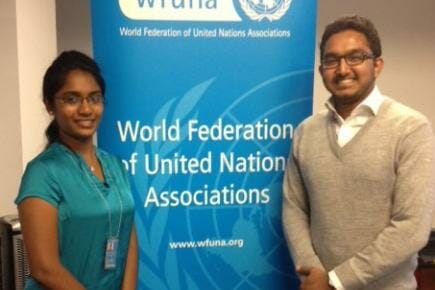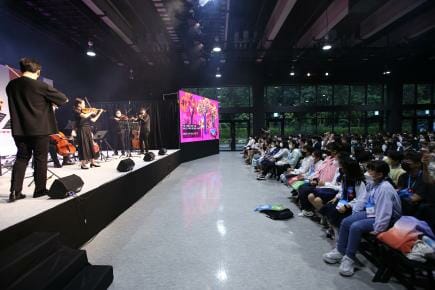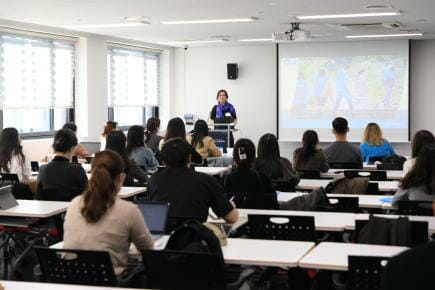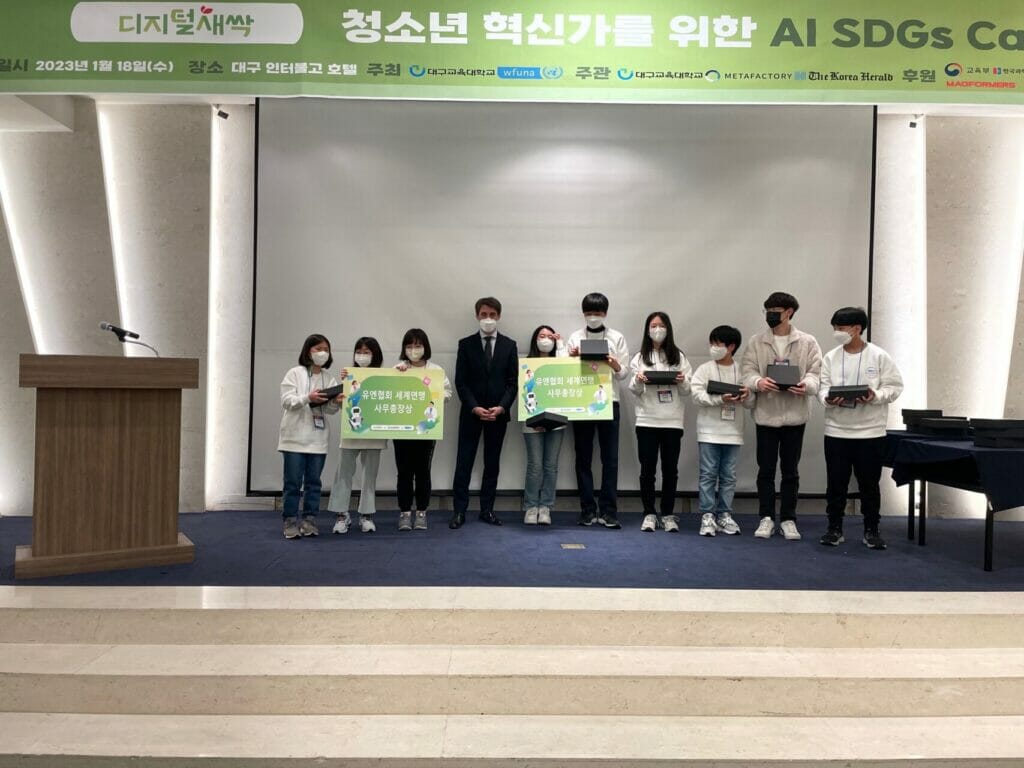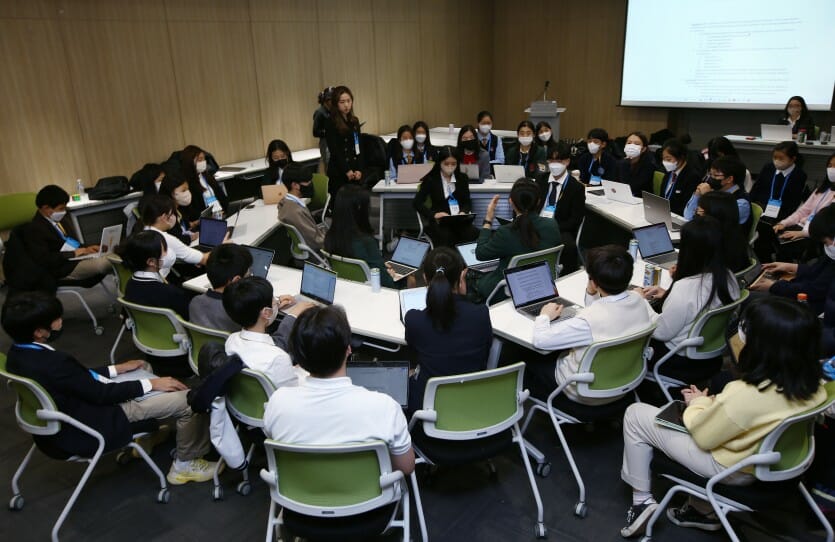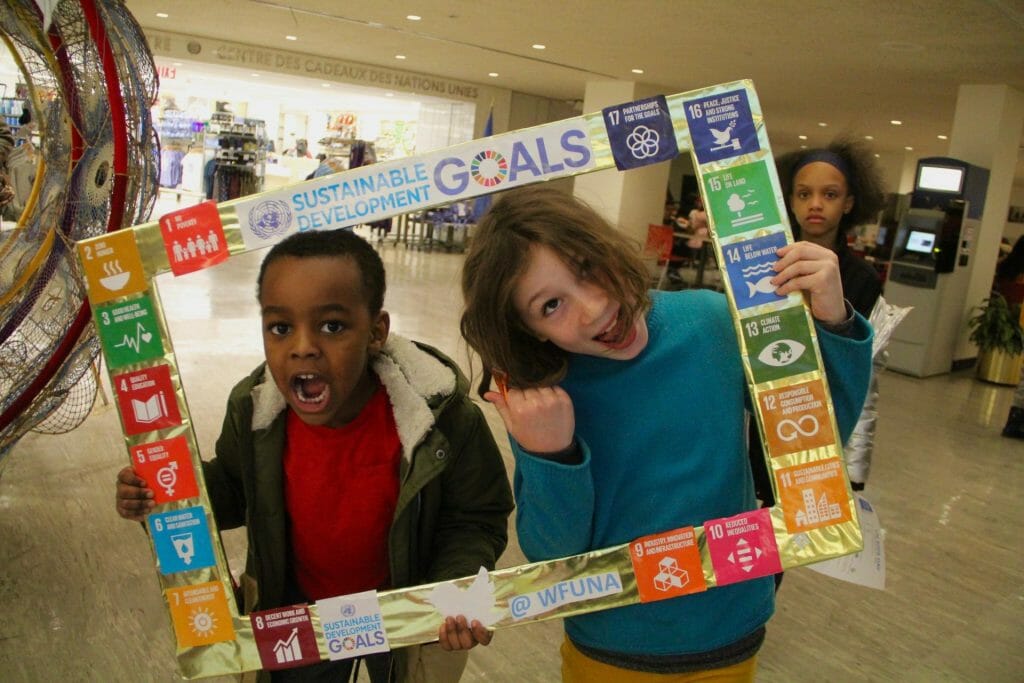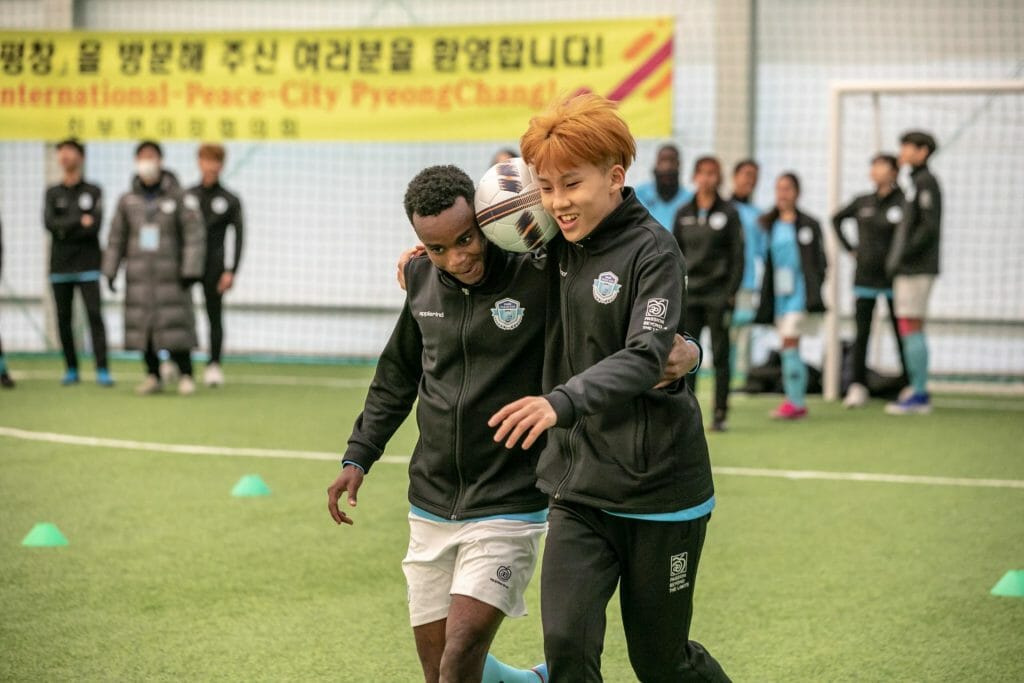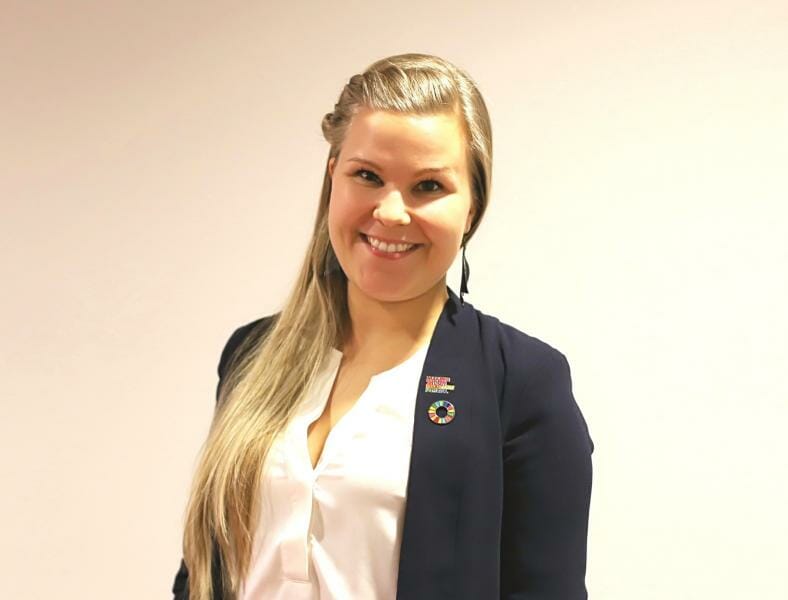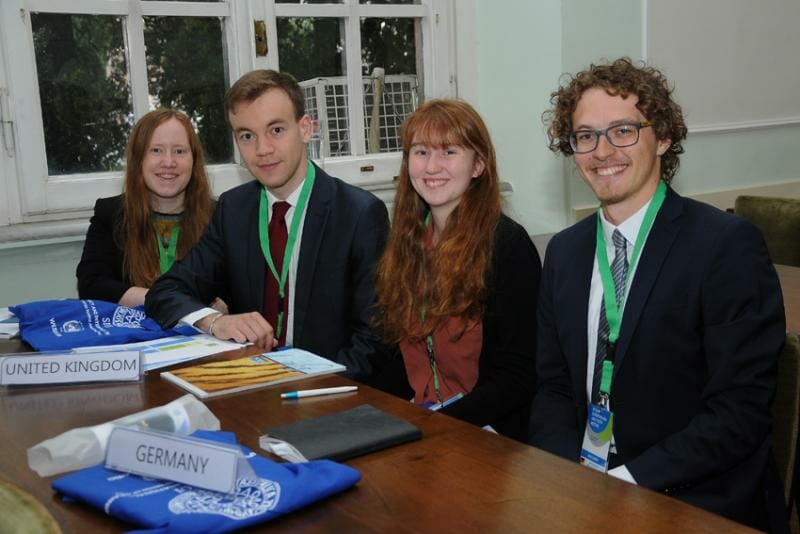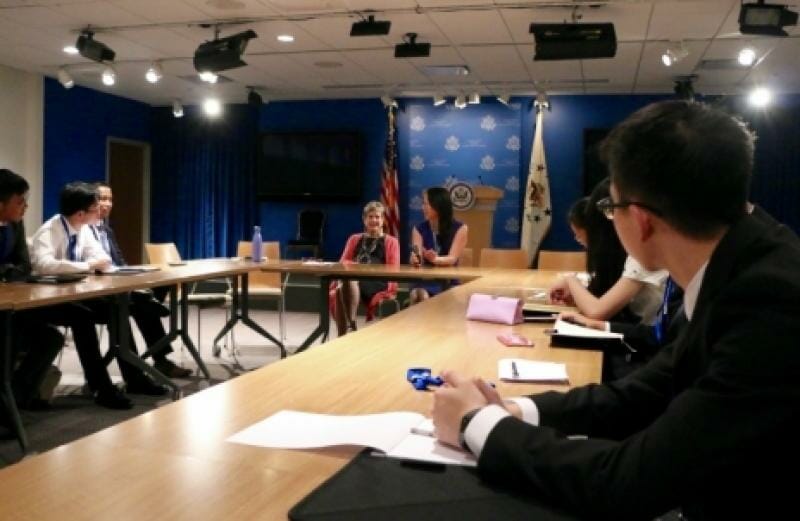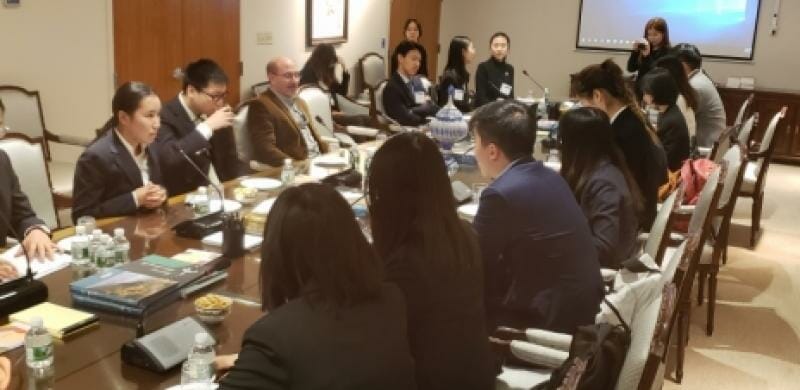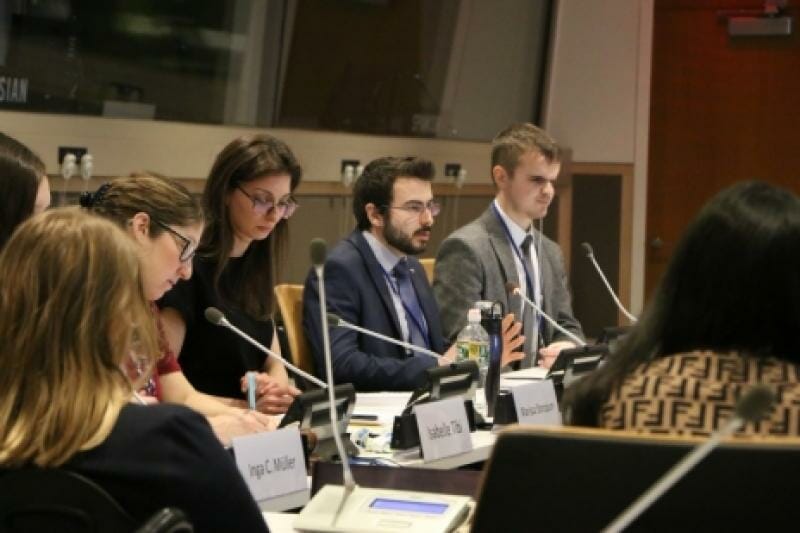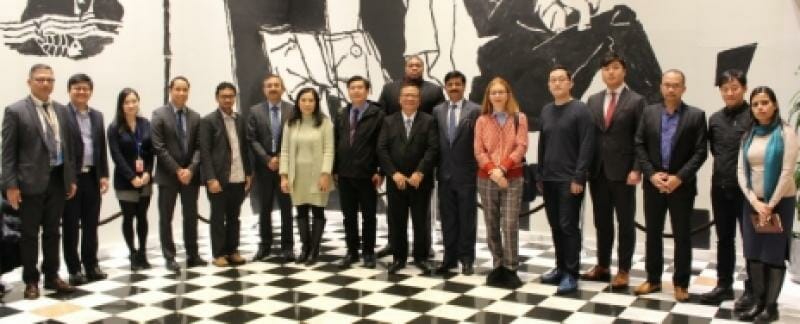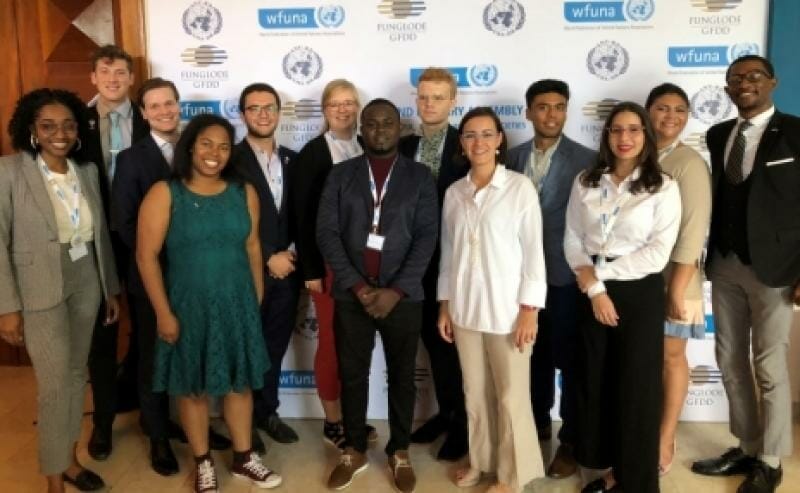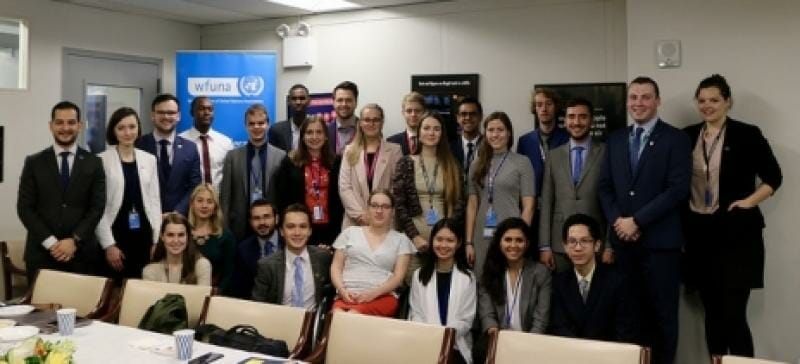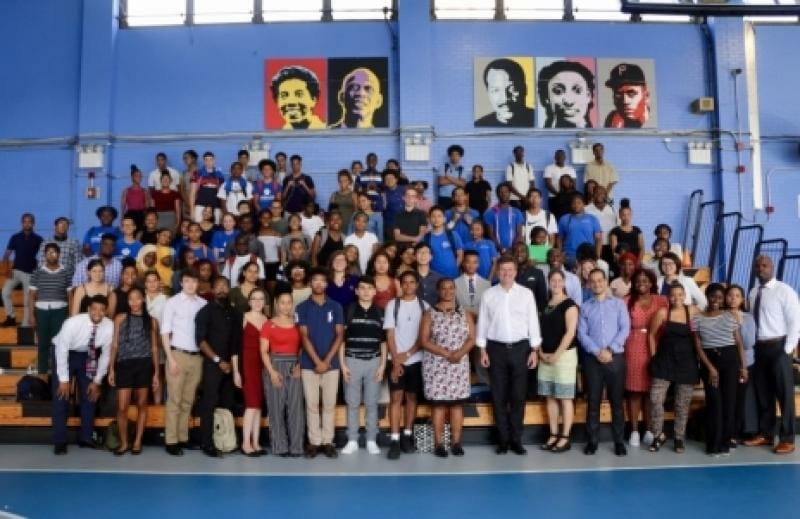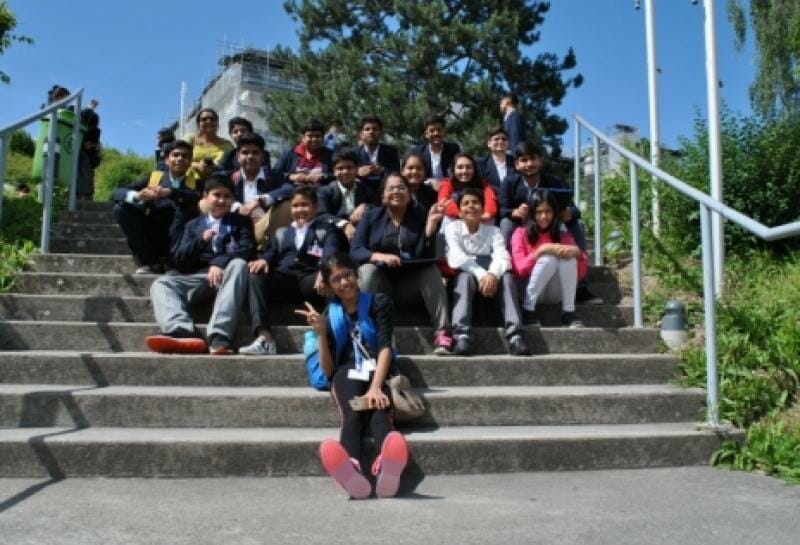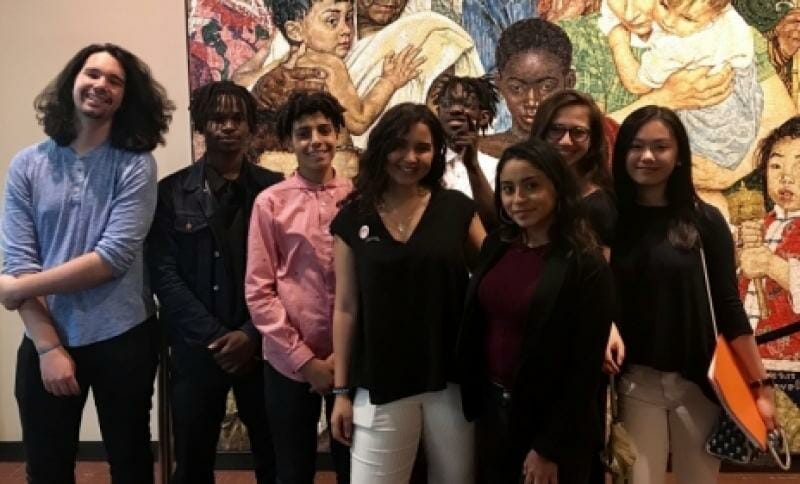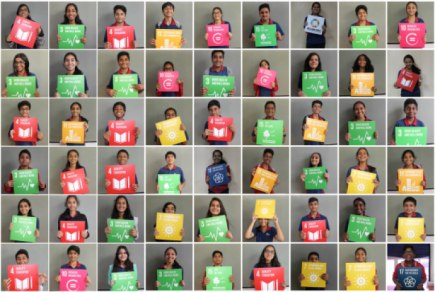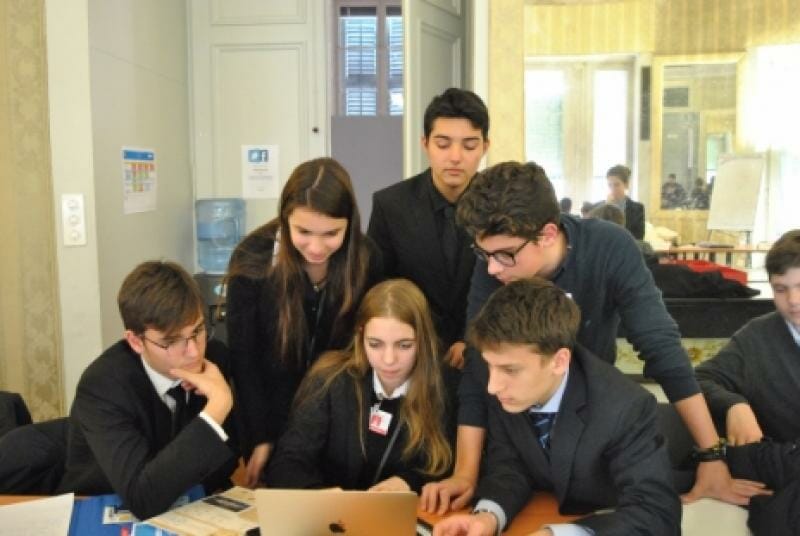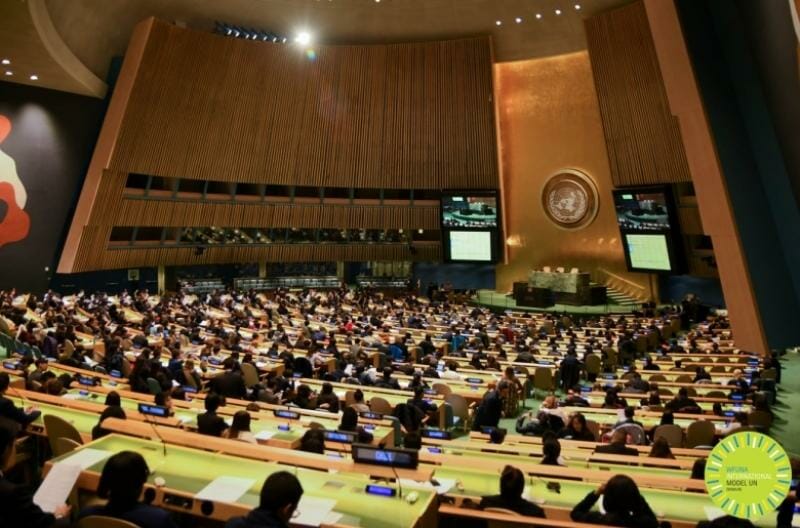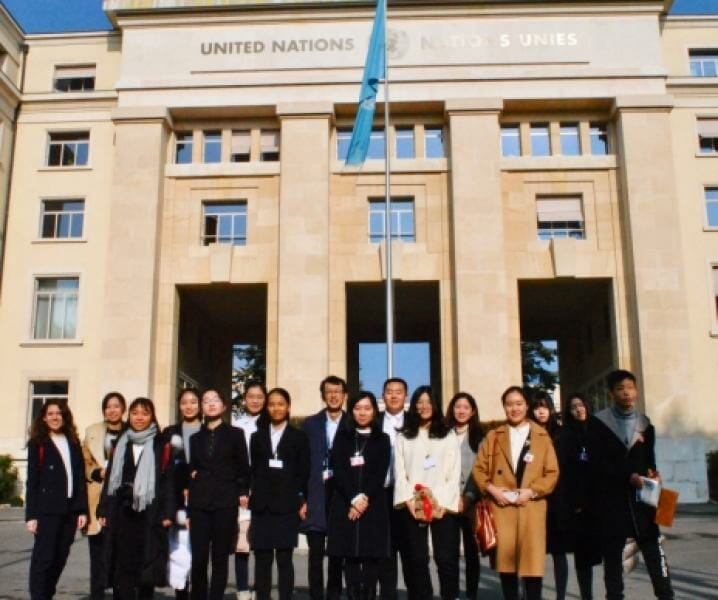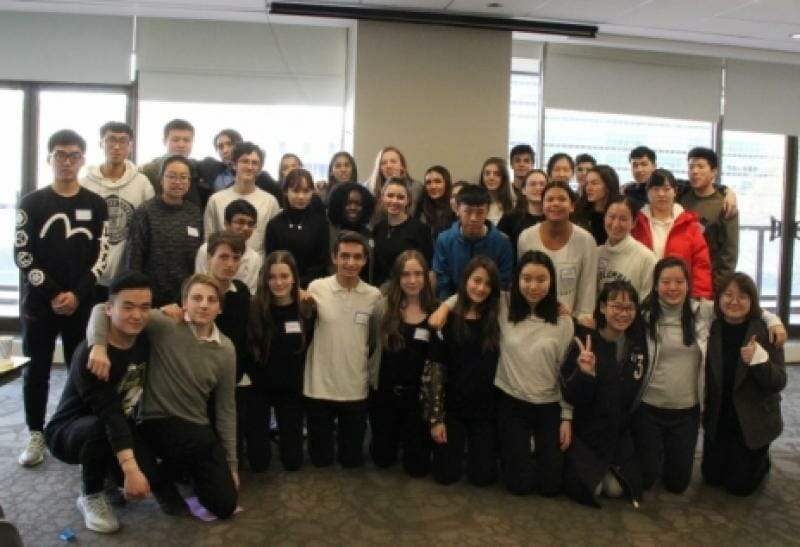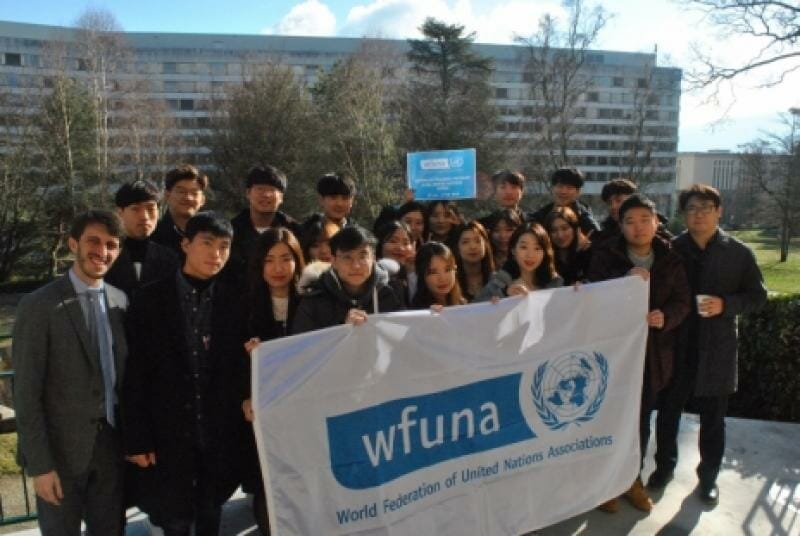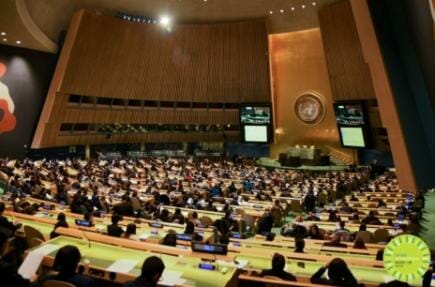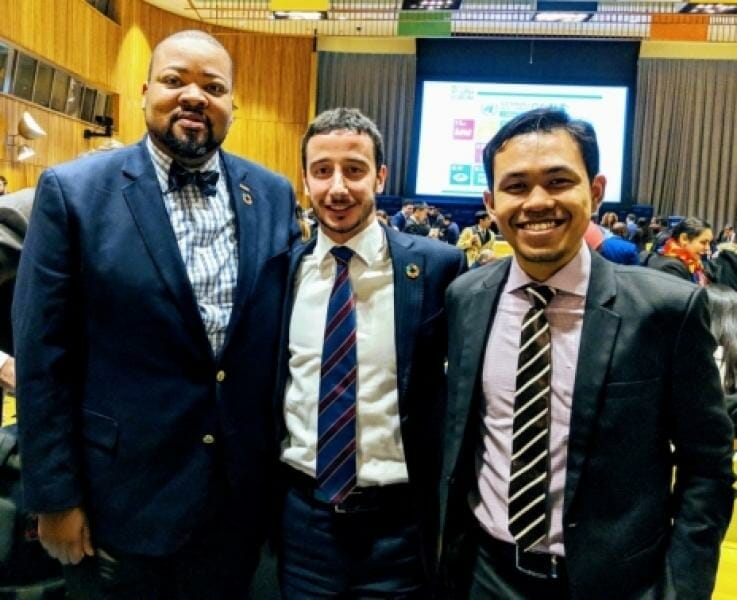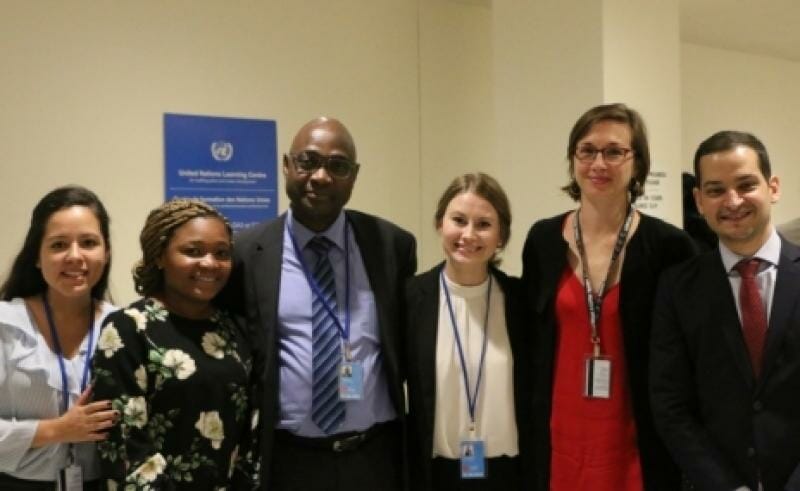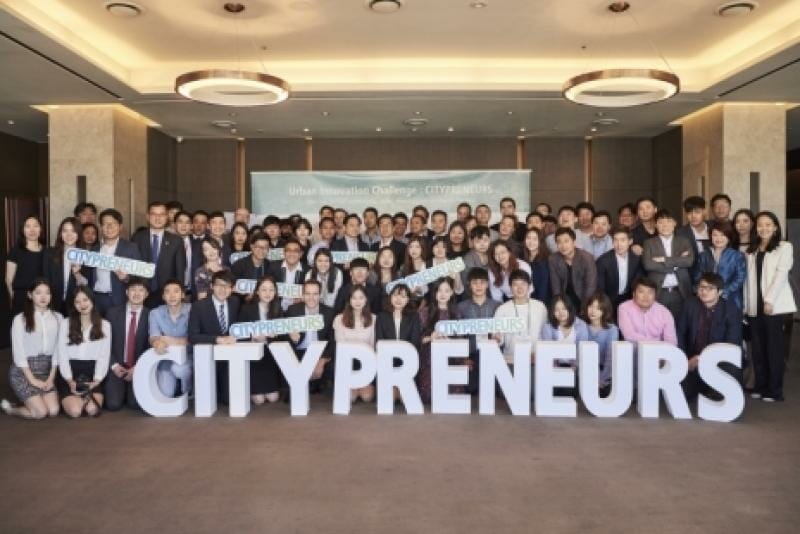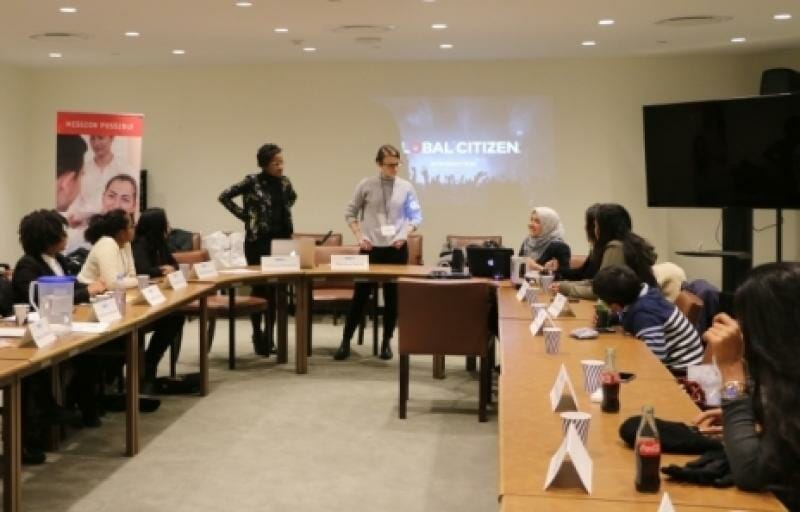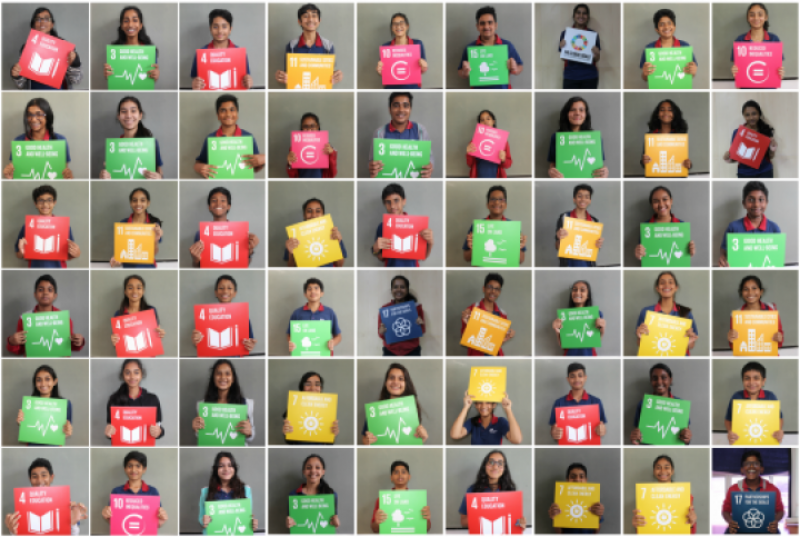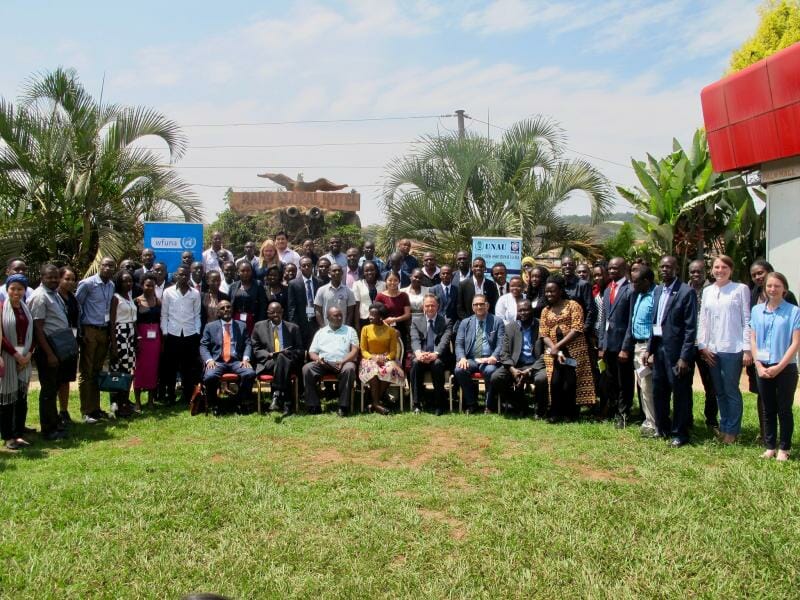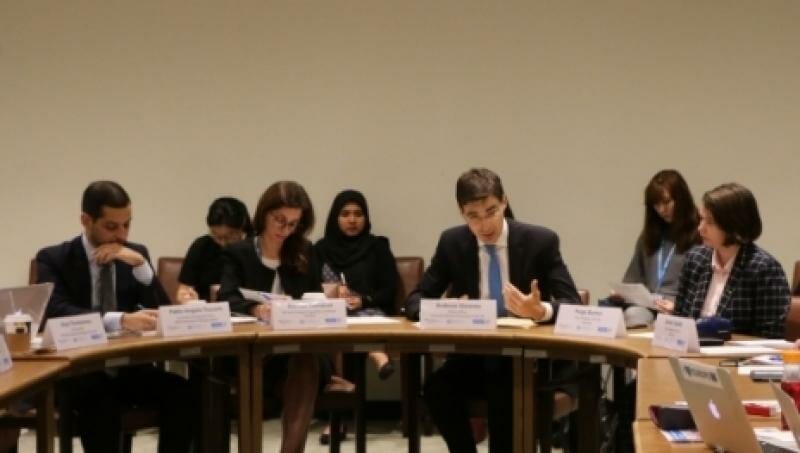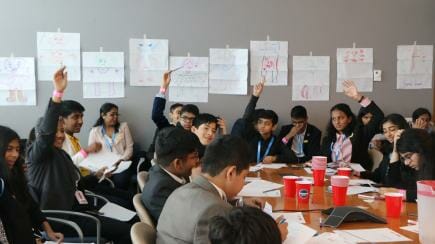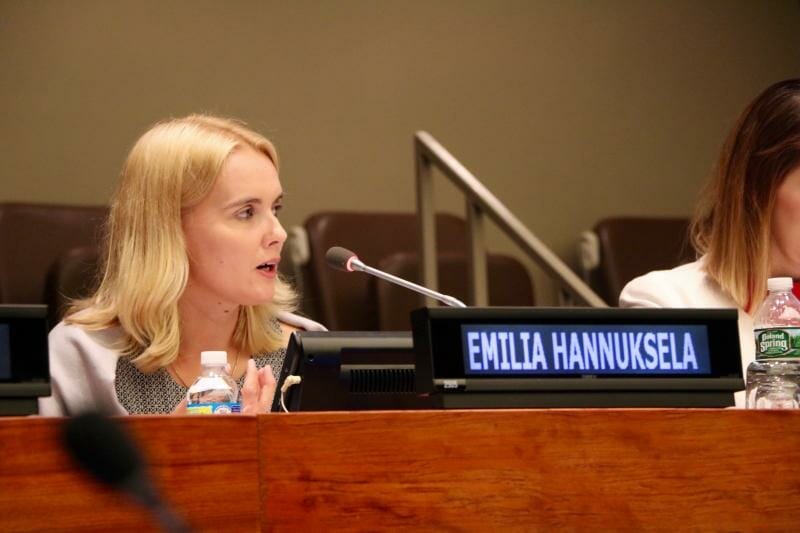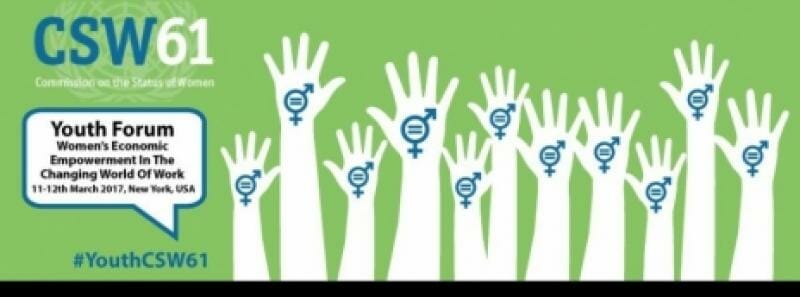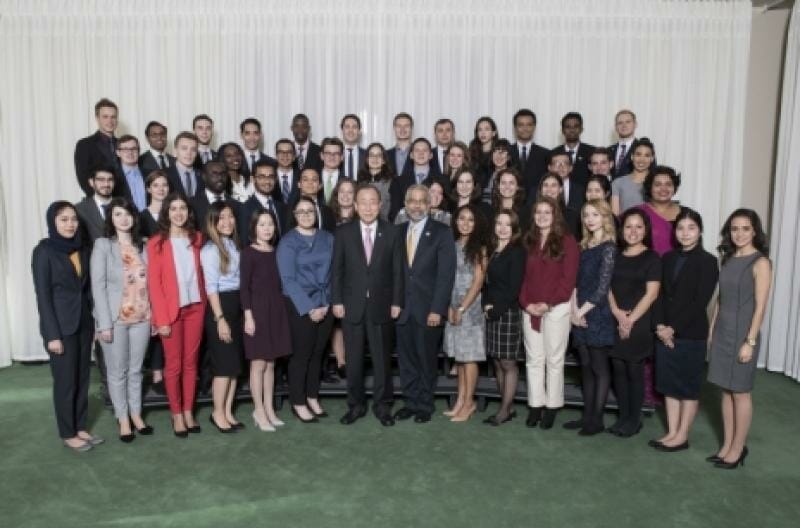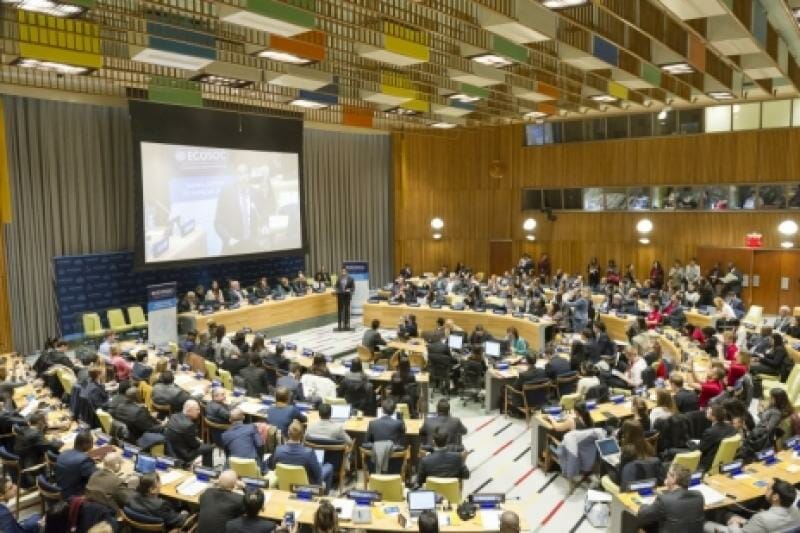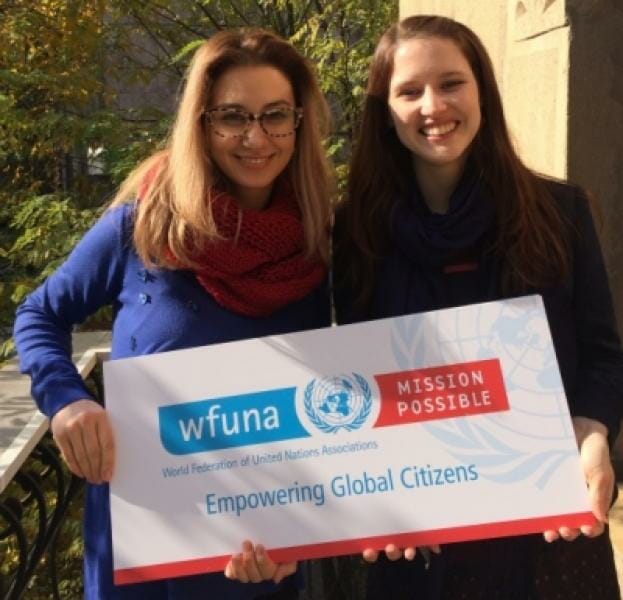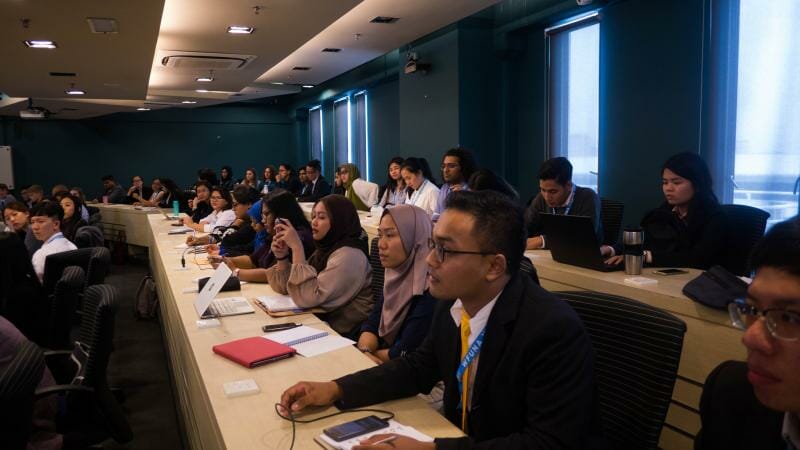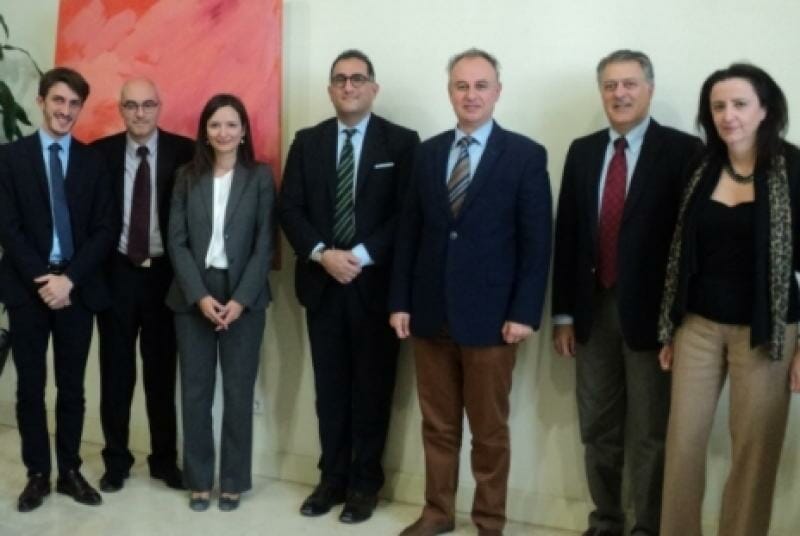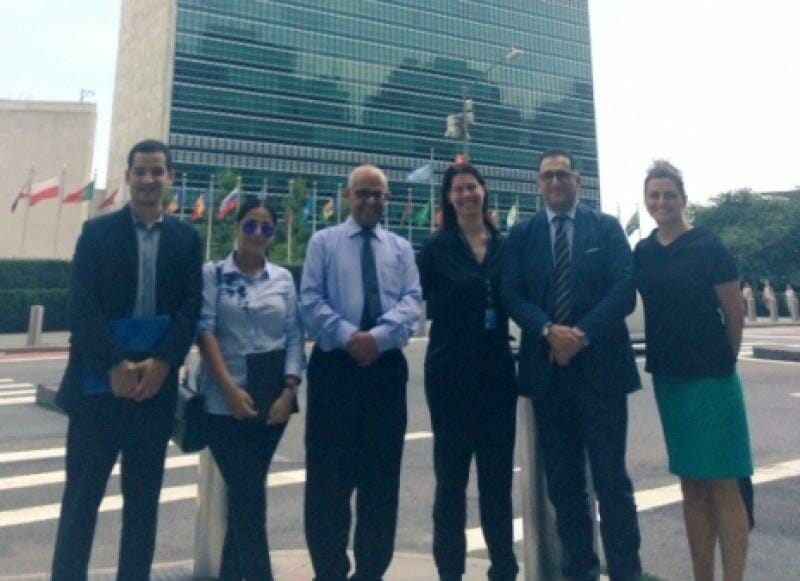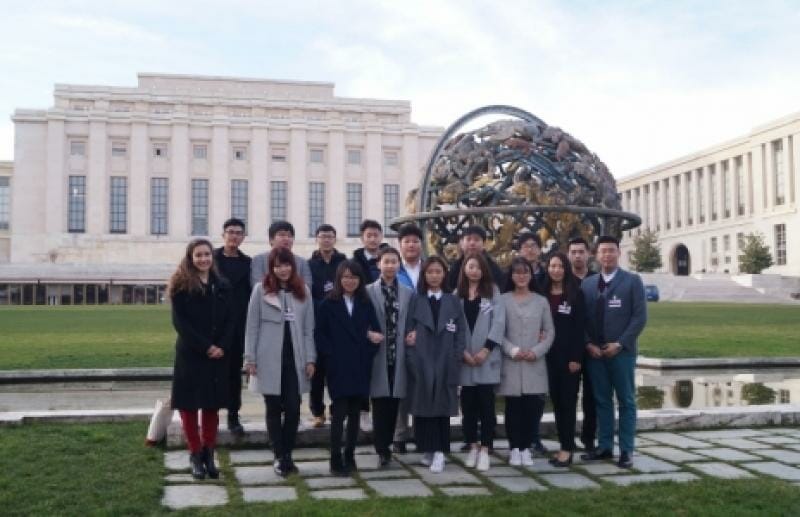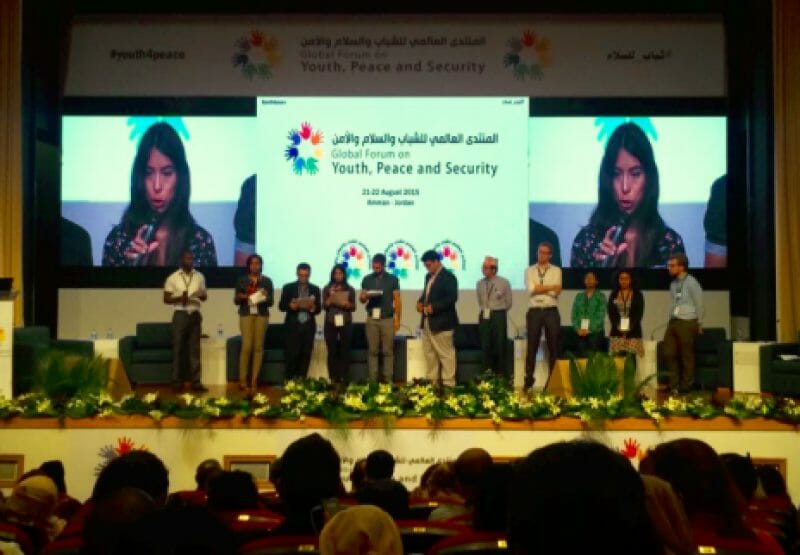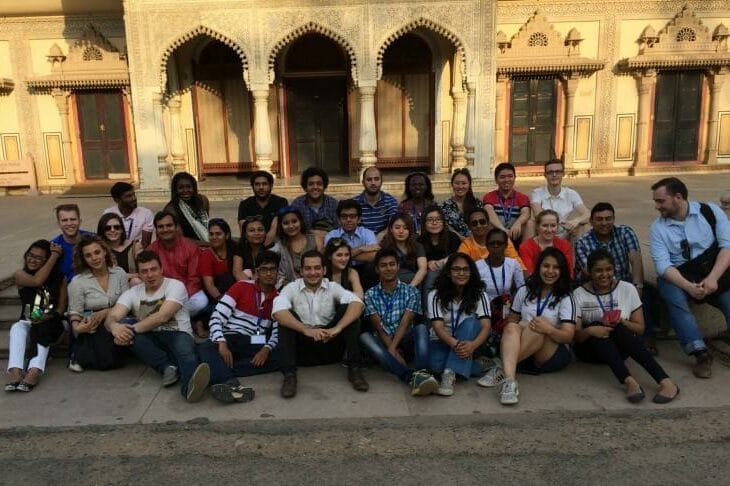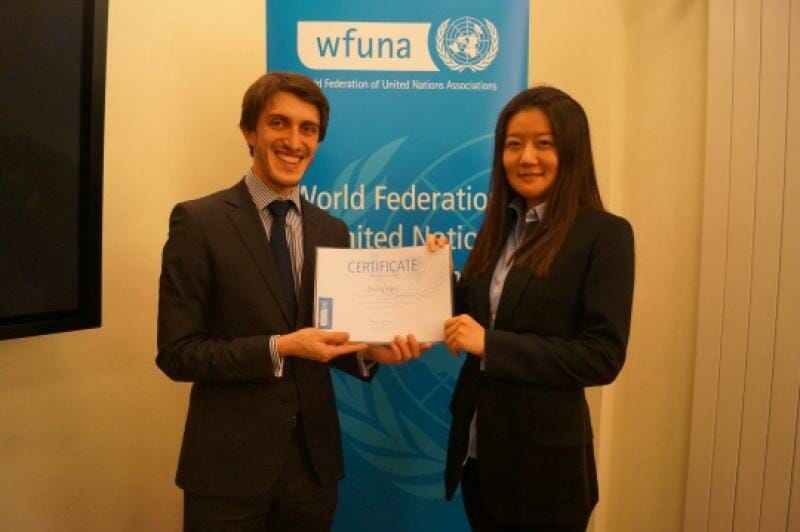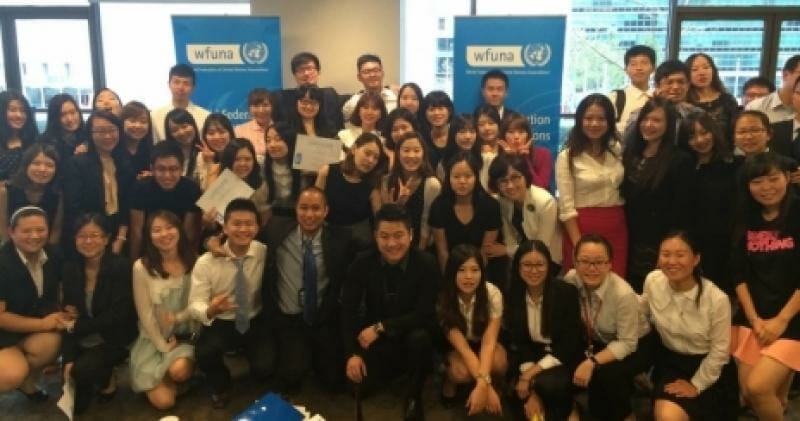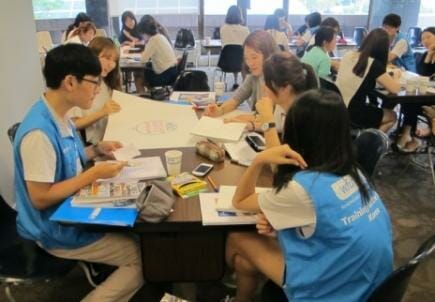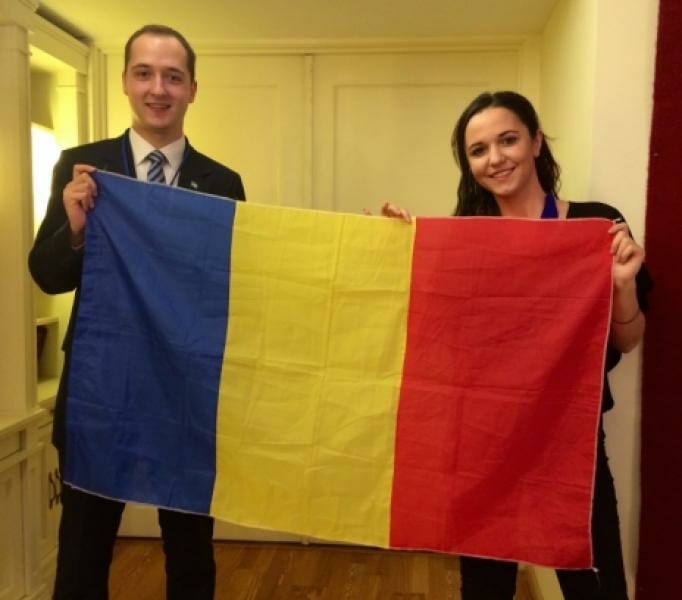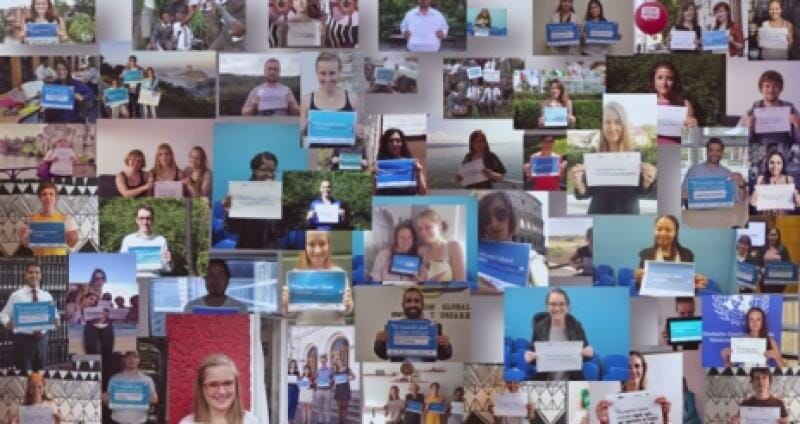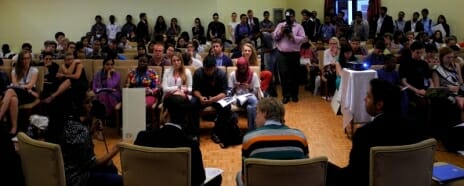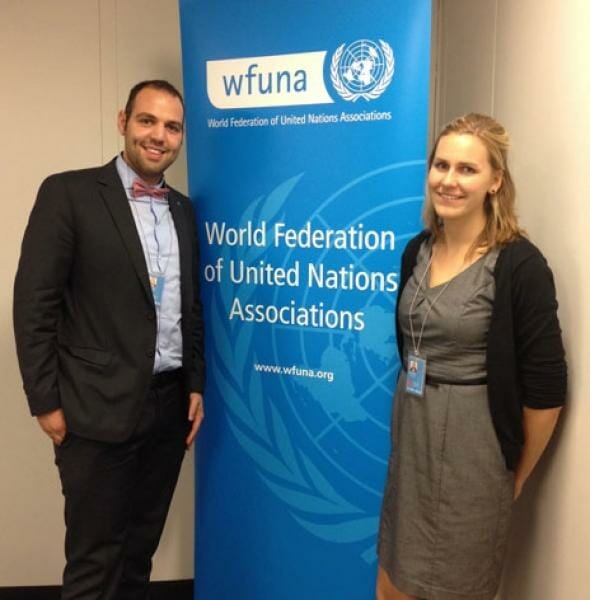As part of our series, we got to chat with Chapa Perera and Adhil Bakeer Markar, the UN Youth Delegates from Sri Lanka. It was especially an exciting time as the World Conference on Youth 2014 was to be held in their home country. Both delegates are studying law–Perera at the University of Colombo in Sri Lanka, Markar at Sri Lanka Law College–and both have impressive leadership experience in youth organizations in their country. They tell us about their road to the UN and what plans they have for the youth of Sri Lanka.
How does the UN Youth Delegate Programme work in Sri Lanka?
Chapa Perera: Actually Sri Lanka is pretty new to this program. We are the second batch. We have an interview process. First, we send a motivation letter as to why we want to be involved and why we are suitable to be selected as a youth delegate. Then we have several rounds of interviews. In the first batch, we had 200 applicants and for our process, we had over 500 applicants.
We are interviewed by several experts, people who have an expert knowledge in international relations, advocacy, economics and youth affairs and at the end of the process, only two people are selected.
How they did get the word out about the application?
Chapa: They used the leading newspapers in the country and then we also have this federation of youth clubs around the country. We have over 10,000 youth clubs and over a million youth members. From the National Youth Services Council, messages are sent all over the country that the application process is open and reaches the youth of all the areas.
How did you both hear about it and what motivated you to apply?
Chapa: I saw it in the newspaper and what motivated me to apply was that firstly I was engaged in youth activities. I am also a minister of the Sri Lankan Youth Parliament, so I was very engaged. And I always had the interest to be engaged in international relations and do my best for the country and the youth of the country.
Adhil Markar: I saw the advertisement in the leading Sunday paper in Sri Lanka and then I applied. I have a background which is related to the UN as well. As most of all you know there are MUN conferences organized all around the world and we have similar conferences. I was the Secretary General of the founding Youth Model United Nations in Sri Lanka, which gathered more 250 youth from different parts of the island. With that experience I always wanted to be a part of the real UN. This is really great to be the ambassador and speak on behalf of the entire Sri Lankan youth.
After you heard you were elected the Youth Delegates, what was the process after that? How much time did you get to prepare for your trip?
Chapa: We actually had about three weeks. It was very hectic. We immediately started a consultation process; we wanted to cover the entire island. So we went around talking to the youth of all the districts about the issues they thought should be highlighted. Because we knew that the statement that we give here not only goes to the international community, it also goes to the national government, bringing attention to what the youth want in the country.
Adhil: To be honest, three weeks is not enough. So, we believe that as youth delegates when we go back to Sri Lanka, from next year they will start the procedure and end it within February, so that the youth delegates have plenty of time to get to know what the UN is, how it works, what is the role of a youth delegate and what he or she should do when they come to New York.
Also the rapport between the UN Country Office in Sri Lanka and the Ministry of Youth Affairs, which selects the Youth Delegates, is very good. Just as we got selected, the UN Resident Coordinator in Sri Lanka wanted to meet us and give us an idea of what the UN was. It was also a morale boost for us as well.
Did you get any knowledge passed down from the previous representative?
Chapa: Yes, we talked to them as to what should be done. We learned that we need a lot of time, especially where we can help them in preparing so that it goes on.
Adhil: With the national consultation process, we covered the entire island, so we have a lot of people speaking different languages. Chapa covered three or four provinces and I covered provinces which mostly speak the language of my community. So it’s really easy for us to interact and communicate. Personally it was really a good experience for us because we had never to these provinces before in this capacity.
What would you say where the top issues that were important in those regions?
Adhil: Number one was quality education, employability issues and social inclusion. Because Sri Lanka as many of you know has gone through a 27-year war and we’re just coming out of it. And there are lot of youth in different provinces whose attitude should be changed, whose attitude was to look at society in a negative way because they have seen war for most of their life.
Education was an important issue, which is very similar to global issues. Because when we take on global issues, all of them start back in your country. If you can address those back in your country, globally, everything will be reduced. Problems will be reduced.
How much of that impacted your agenda coming to New York? Was education a big part of what you planned to speak about?
Adhil: It was. Because one main aspect of being a Youth Delegate is to present your national statement on behalf of the youth of your country at the Third Committee of the UN GA. When we made that, we made sure that we did not only represent the government of Sri Lanka, but that we represented the youth of Sri Lanka.
If you take that statement it covered education, employment and social inclusion, which it was most of what the Sri Lankan youth were talking about.
How can youth help reconstructing societies that are in conflict or were in conflict?
Adhil: Youth in post-conflict situations can play a big role. Number one because youth can interact with any person, a person who might be a generation below them or a generation above them, and they can be that bridge.
Also being a youth delegate from one of those countries is a huge advantage because when you come to New York, you see the diversity of people here, you learn how these countries have been economically well developed and you can take the positives from these societies and go back to your country and pass the messageand say: This is how these countries work.
Chapa: In my case, I have personally seen as to how youth can be actively engaged in the post-conflict process and the reconciliation process which is really essential. As I told you, I am a member of the Sri Lanka Youth Parliament. In the Sri Lanka Youth Parliament, we have 412 democratically elected youth members. They interact and they are from all over the country; they share their ideas, we debate on policies, we debate on crucial issues for the country, we debate on the Post-2015 Agenda, that was the topic of debate this last October session.
So, when these ideas are being exchanged, I personally ask how flexible they are and adapt to different things. We think that youth are the best tool that can be used in the reconciliation and the post-conflict process because they’re flexible, they can adapt, they are not rigid. That’s something that should be used and it is being used in our country.
What are your plans when you return? How are you going to use this experience?
Adhil: Number one is to deliver our statement to the places we visited so that they actually know those were the problems we spoke about at the United Nations and we didn’t deviate from what they said. We will show them photos of the people we met, who make policies at the UN, because we had the opportunity of meeting the Deputy Secretary General.
Chapa: And tell them what the UN is because one person thought it was a taxi service.
Adhil: Because we have those huge vehicles that say UN.
What would your message be to the youth of your country and how they can get involved? There are only two of you. Not everybody can be a UN Youth Delegate, but they can be involved and take action on issues that are important.
Adhil: I personally think that two delegates is more than enough for a country. Especially for a country like Sri Lanka. But we need to look at the bigger picture. We need to look at Asia, South Asia and developing countries because when we met policy makers, when we met the DSG, when we met different speakers in different side events what they said was that 62% of the youth population live in developing countries and most of them live in the Asian region. But we unfortunately have two countries which have youth delegates to the UN. One is Sri Lanka and the other is Thailand.
So if we can increase the number of youth delegates from developing countries, from Asia, so that it actually reflects the number of youth those countries have that would be more important. So, we have spoken to the Indian Mission, we have spoken to a couple of Indian young leaders so that they implement such a program. It’s better that it comes from a South Asian country as well. That’s what we are looking for.
What else that fulfilling the mandate of your position are planning to do when you return? Are you in school?
Adhil: I actually finished my LLB. In order to get into the Bar of Sri Lanka, in order to practice basically, I need to go through the Sri Lankan Local Exams. I’m sitting for my first exams in April.
Chapa: I am also a law student. I’m the third year of the Law Faculty in Colombo, Sri Lanka. When I go back to Sri Lanka, I will, apart from the academics, have the World Conference on Youth. And since Adhil and I are in the International Youth Taskforce for the Conference on Youth, we’ll be engaged in the Commonwealth Youth Forum and the Conference to follow. I’m sure we’ll have a busy year.
What about the World Conference on Youth? What do we have to look forward to?
Chapa: The World Conference on Youth is happening May 2014. The main objective is firstly to engage and include young people in reviewing the MDG’s and their progress so that young people have a chance to actually review what has been done. And then through that, to build this intergenerational platform for everyone from Ministers to Permanent Representatives to Youth, Youth Led Organizations and Youth Movements to come together and to plan a process and implementation and follow up mechanism for the post-2015 agenda. That is the main objective of the Conference.
Adhil: To add to what Chapa said, another objective is that if you compare the MDG’s and the Post-2015 Development Agenda, the MDG’s did not have any consultations. It was done by experts only. But this time we have the opportunity to actually involve people in the Post-2015 Development Agenda. We thought of utilizing this opportunity and make the next year’s conference a conference that reflects what youth think.
Random Question: What is your favorite book?
Chapa: The Harry Potter Series. I like the first book.
What did you want to be when you were a kid?
Adhil: I wanted to be a cricketer. Cricket is the main sport in Sri Lanka. I played for my school as well. And if you play cricket for the national team, you’re basically sorted. It’s like baseball here or football in Europe. I wanted to be a hero.


